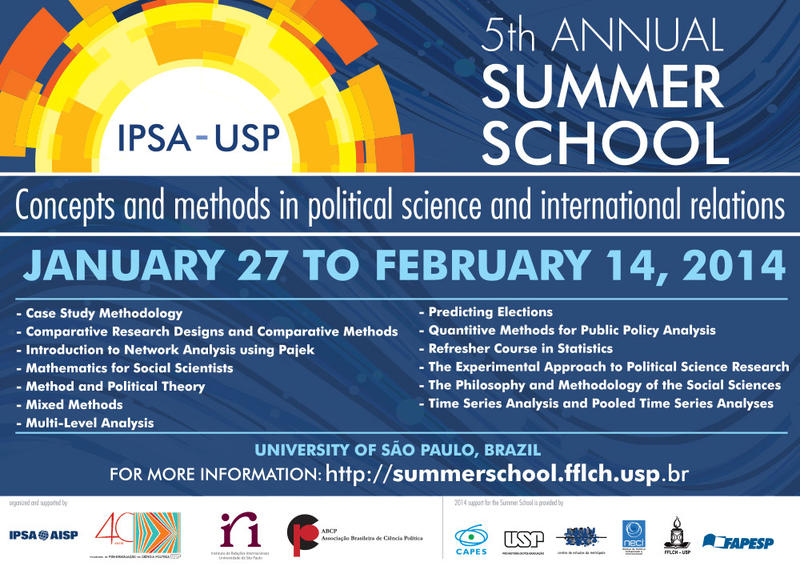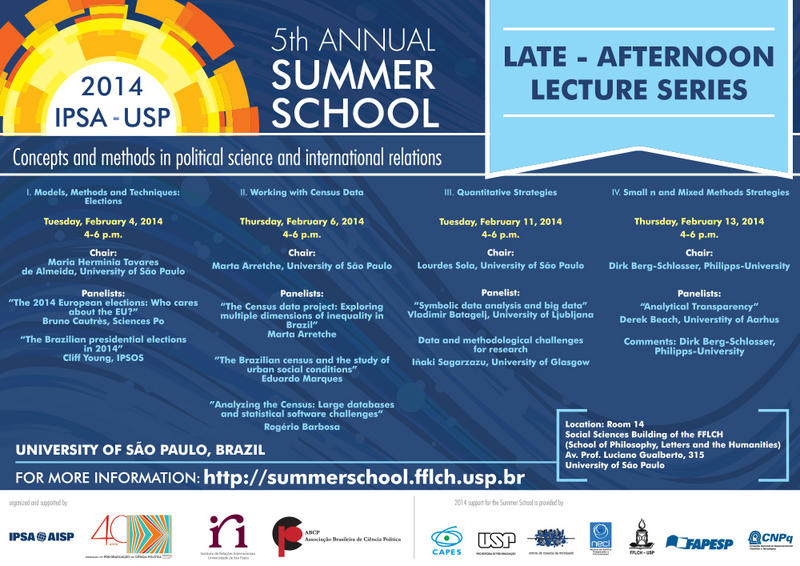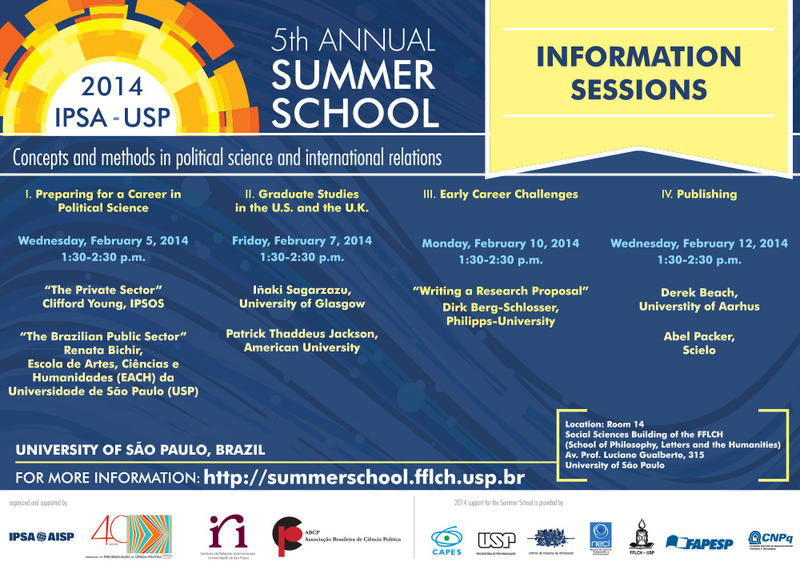
The 5th session of the IPSA-USP Summer School on Methods and Concepts in Political Science and International Relations was held at the University of São Paulo from January 27 to February 14, 2014. A cooperative partnership between the International Political Science Association (IPSA) and the University of São Paulo’s Department of Political Science and Institute of International Relations, the School welcomed 153 students from 62 institutions in 17 countries, with women accounting for 50% of the student body.
Courses were offered in a variety of quantitative and qualitative fields:
- Comparative Research Designs and Comparative Methods (Dirk Berg-Schlosser, Philipps University Marburg)
- The Philosophy and Methodology of the Social Sciences (Patrick Thaddeus Jackson, American University)
- Quantitative Methods for Public Policy Analysis (Bruno Cautrès, Sciences Po, Paris)
- Multi-level Analysis (Iñaki Sagarzazu, Glasgow University)
- Time Series and Pooled Time Series Analyses (Guy Whitten, Texas A&M University, and Lorena Barberia, University of São Paulo)
- Case Study Methodology – small-n research designs (Derek Beach, University of Aarhus, Denmark)
- Predicting Elections: Analytical Techniques and Illustrative Case Studies (Clifford Young, IPSOS-Washington)
- Introduction to Network Analysis using Pajek (Vladmir Batagelj, University of Ljubljana)
- Refresher Course Statistics (Lorena G. Barberia, University of São Paulo)
- Mathematics for Social Scientists (Glauco Peres da Silva, University of São Paulo)
Once again, students were invited to participate in four information sessions titled (respectively) “Preparing for a Career in Political Science”; “Graduate Studies in the U.S. and the U.K.”; “Early Career Challenges”; and “Publishing.”
The IPSA-USP Summer School also hosted a series of public lectures intended to enrich discussions on how methods are improving the quality of research in the field. The four late-afternoon lecture series given by Summer School faculty dealt with the following themes: Models, Methods and Techniques: Elections; Working with Census Data; Quantitative Strategies; and Small-n and Mixed Methods Strategies.
Institutional Partners
Generous support for the Summer School was provided by the Coordenação de Aperfeiçoamento de Pessoal de Nível Superior (CAPES), the University of São Paulo, FAPESP, IPSOS, IPSA, the Centro de Estudos da Metrópole (CEM), and the Brazilian Association of Political Science (ABCP).
Summer School Faculty
Local Organization Committee
Dirk Berg-Schlosser, Executive Director
Eduardo Marques, Department of Political Science, University of São Paulo
Lorena Barberia, Department of Political Science, University of São Paulo
Daniela Schettini, Institute for International Relations, University of São Paulo
Feliciano de Sá Guimarães, Institute for International Relations, University of São Paulo
Faculty Instructors
Lorena Barberia, University of São Paulo
Dirk Berg-Schlosser, Philipps University Marburg
Derek Beach, University of Aarhus
Vladmir Batagelj, University of Ljubljana
Bruno Cautrès, Sciences Po, Paris
Patrick Thaddeus Jackson, American University
Glauco Peres da Silva, University of São Paulo
Iñaki Sagarzazu, University of Glasgow
Guy Whitten, Texas A&M University
Clifford Young, IPSOS-Washington














